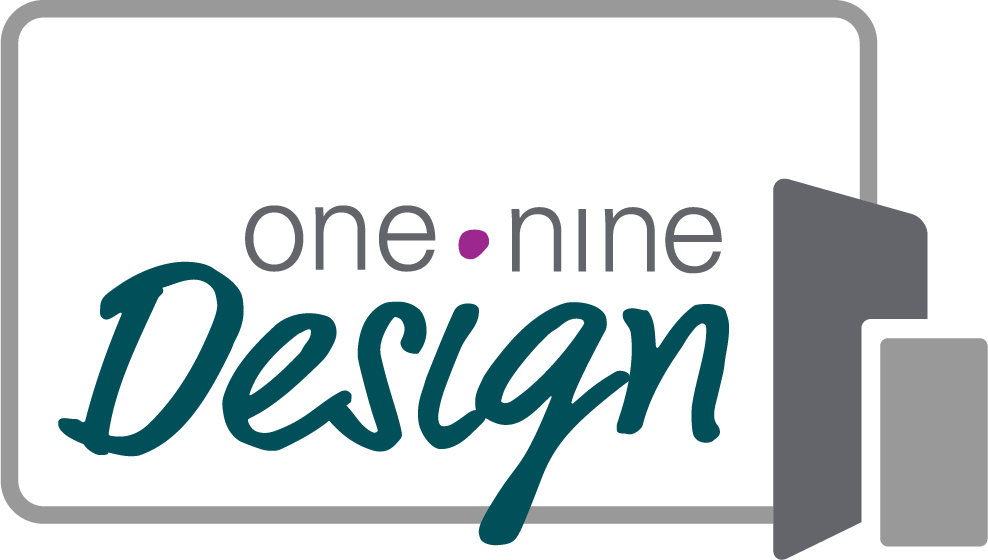Resources To Help You Become A Better Writer [plus examples for small businesses and nonprofits]
Updated April 2023
If you don’t think writing is an essential skill in marketing in a small business or nonprofit - consider this: 60% of marketers create at least one piece of content daily. (Source: eMarketer)
Millions of small business owners likely never thought they’d need to do the volume of writing they do daily. While some of this content is internal -- emails, memos, Slack chat, etc. -- much of it is public and used to attract and retain customers.
For nonprofit organizations, the stakes are even higher. Writing for soliciting sponsorships, donations, grants, and partnerships is a significant portion of any nonprofit leader’s duties.
So how do you become a better writer if you haven’t been trained or formally educated in writing? There’s no secret equation: going back to college to major in English isn’t necessary.
The first key is being aware of where your public writing appears. Then, following a few tips and taking advantage of some great digital tools can get you the rest of the way!
Places where your writing is visible
There’s a common misconception that writing skills are only crucial for those who choose to write for a living. In other words, you don't need to work on your writing skills if you’re not an author, professional blogger, or grant writer.
Unfortunately, that’s not the case. Your writing appears in all kinds of places, whether you realize it or not. And your writing may be holding you back or making an unfavorable impression of your organization.
Website Copy and Blog
One of the most visible places you showcase your writing skills is on your website and blog. Typically, small businesses or nonprofits cannot afford to hire professional copywriters, so the website content is either created by the website designer or the internal staff.
The problem with allowing your website designer to write your website copy is experience. Unless you’re hiring someone who has worked in your industry and has professional experience writing for your specific audience, it’s not a good idea to have your website designer or developer write your website copy. Even more so, people are only interested in content that has value. For example, people find a blog more credible with proper citations.
Likewise, asking an internal team member to do the writing can be equally disastrous. Even those who have worked with you for a long time may not have the skill set to write professionally or in a conversion-optimized manner.
Whenever possible, budget for professional writing services, or at the very least, check out some of the resources available below.
Printed promotional materials
Every marketing piece you create displays your writing abilities, from signs in your windows to flyers, brochures, and annual reports. Unfortunately, these printed materials are costly to reprint should you find a grammar or spelling mistake after publishing. They represent your brand, so it’s critical you spend the time to make them professional.
Emails to vendors, sponsors, or partners
Nearly every business owner or nonprofit leader sends written correspondence to vendors, sponsors, partners, or other collaborators. It can be tempting to fire off emails without thinking or going through the editing process - it’s done daily. However, this approach can be detrimental at best or disastrous at worst.
For instance, if you’re trying to promote low-cost franchises to potential franchisees and your pitch emails are riddled with grammatical errors, typos, and poor writing structure, the chances of your email recipient interpreting that email as credible or trustworthy is slim.
Likewise, if you’re soliciting a corporate sponsorship or trying to recruit a new board member and your emails are poorly written, the message is likely being lost and overshadowed by the mistakes.
Grant applications
As a former United Way director, I’ve reviewed hundreds of grant applications, and the writing skills in these documents are far more important than the nonprofit applicants realize. (In fact, this topic deserves its own post!) In short, grant applications are an instance where budgeting for some professional help is highly recommended.
Related: Nonprofits - looking for grant writing tips to help you land that grant for a new website? This post is for you!
Social media captions
Perhaps your social media presence is the most visible and frequent display of writing skills. Yet, from Facebook posts to Instagram captions, this writing tends to get overlooked for the sake of getting it done and moving on.
However, this approach can backfire when your writing doesn’t clearly convey your message or align with your brand standards.
Small business writing tips and examples
Understand your audience’s problem and clearly articulate the solution you offer.
Flyer headline example: Winter weather is here - try our best-selling layering gear.
Repeat customer language in the content you create
Tip: If customers constantly mention your mouth-watering lasagna in their Yelp reviews, incorporate that phrase into your website headlines.
Ensure you’ve provided value and not simply words on a page. Don’t fill up the page for the sake of word count - be intentional with each sentence.
Tip: On your next brochure, evaluate every sentence and ask yourself - does this move the reader toward action, or is it taking up space?
Nonprofit writing tips and examples
Use storytelling to amplify the impact of your writing
Website writing tip: Ditch the mission statements from your home page and replace them with a story about how a client or program participant found your nonprofit and had a transformational experience.
Focus on outcomes, not outputs. Instead of using only numbers to describe your outputs, include a story where real people with outcomes represent the numbers.
Annual report writing example: 70% of our clients now report having ten or more books in their home and that their kids are reading at or above grade level for the first time.
Remember your writing serves more than one audience
Example 1 - Donors: Your gift before December 31 will allow us to immediately put car seats in the hands of new mothers and keep newborns safe.
Example 2: Client: We understand that keeping your new baby safe is your highest priority and that new car seats are a luxury some simply can’t afford. We can help.
Three Resources to help you become a better writer
While writing comes naturally to many people, others need a little help from time to time! These three writing tools can help you learn to write more effectively and save you time!
I love using Grammarly to do a final edit on my writing. While it doesn’t replace having someone else read and review my work, it does catch most spelling and grammar mistakes. While a free version is available, I highly recommend the professional version to take advantage of writing suggestions.
Have you ever needed a little help with a sentence that just didn’t sound the way you wanted? I use WordTune to refine my sentence structures when I want to say something different but can’t think of the words!
This is a great tool to use when you find yourself using the same word repeatedly, as well.
The Hemingway App is extremely useful for evaluating the reading level of your text and ensuring you are writing on the right level for your readers. It also flags confusing sentences, excessive passive voice, etc.
Quillbot is an AI-powered paraphrasing tool that helps users rewrite text by suggesting alternative phrasing and synonyms. It also includes features for grammar and plagiarism checking. As a writer, Quillbot can help you save time and effort by providing quick and accurate suggestions for paraphrasing. This allows you to focus on the content and message you want to convey, rather than spending excessive time on the phrasing and structure of your writing.
Key Takeaways
The next time you sit down to write that social media caption or email pitch, run your draft through a few of those recommended tools and ask a friend or colleague to review it first.
Then, stay consistent. It’s really true - the more you write, the better you write.
Until next time,
Andrea
You might find these related posts helpful:
One Nine Design is a digital marketing company helping nonprofits learn how to use their website and email list to grow their reach and make a bigger impact!





